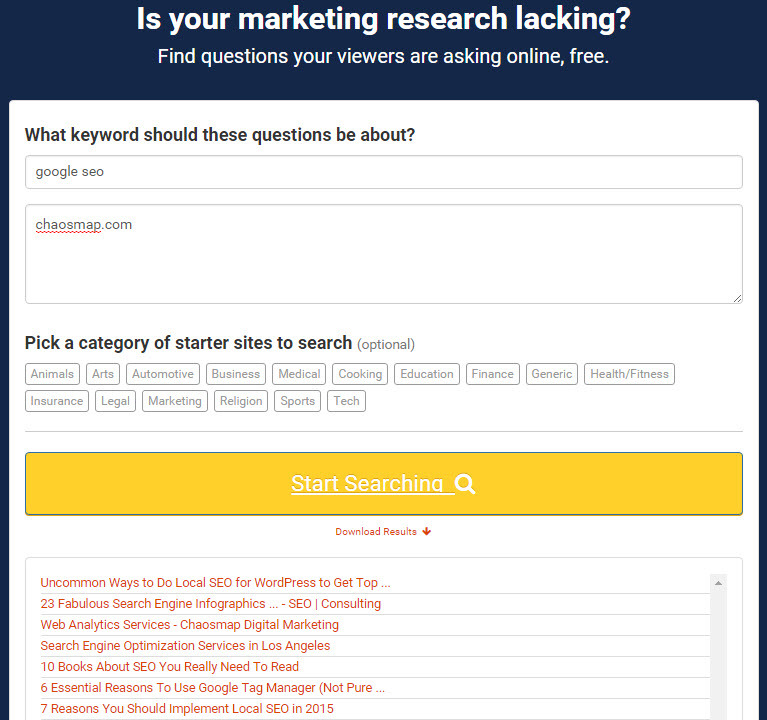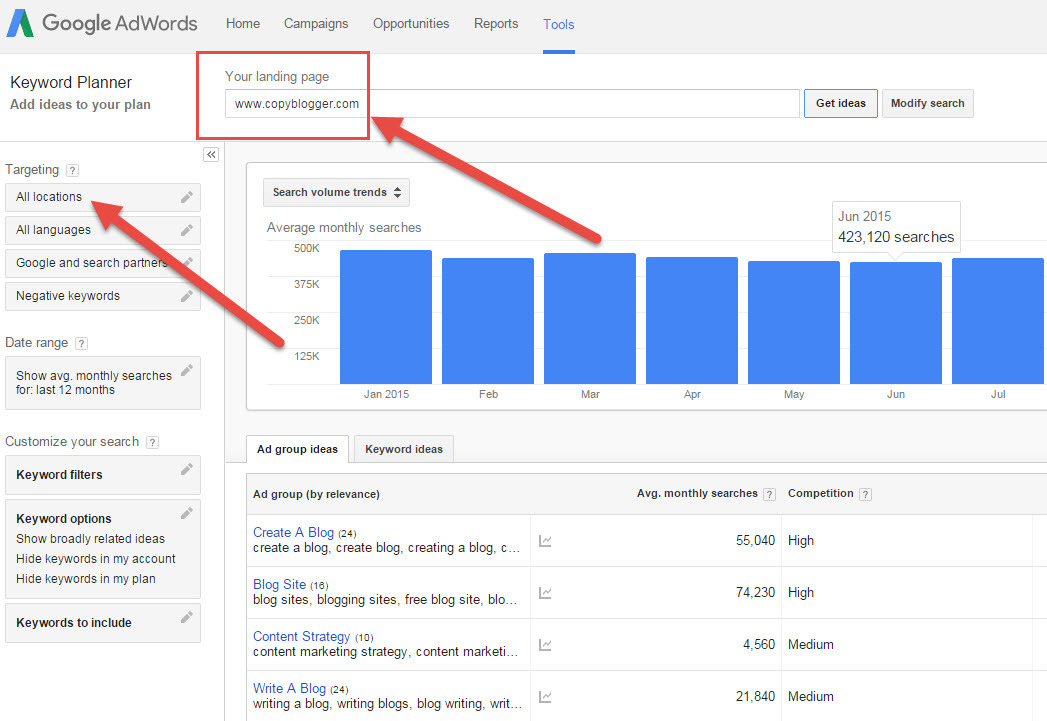It’s no secret that keyword research should be at the core of every online marketing campaign.
While there are plenty of marketers who downplay the role keyword research plays in terms of crafting content, boosting traffic and improving conversions these days, it’s important to understand that it still reigns supreme even after all the updates released by Google.
(One of these major Google updates: Google Hummbingbird, is changing how we look at the ‘keyword game’. Instead, we’re looking for answer-box query opportunities… with search context and user intent in focus. It’s obvious: “display the best search result to a query, but also the one that searchers click + engage with”).

The thing is, most marketers do not know how to do keyword research the right way.
If what you do when researching for keywords is entering a seed term in Google’s Adwords Keyword Planner, downloading the results and then sorting the list in a spreadsheet, then you are definitely missing out on a ton of opportunities. (However, it’s a starting point).
This same method is being done by countless other marketers every single day.
Sure, you might discover a hidden gem, but why limit yourself? If you have an authoritative domain (research domains via keywords too), then this shouldn’t be an issue for you.
But if you’re still working your way up, then you want to uncover keywords that few others will target, and still have good conversion chances.
Lower competition means higher chances of ranking on top of the search results, and if the messaging (copy) and call-to-action is done right, you’ll boost your bottom-line too.
Your first order of business is to change your perception about Google’s Keyword Planner. (NOTE: The Google kw research tool is found inside the Adwords product. It’s geared towards paid search (PPC), and leaves many SEO and long tail terms ‘hidden’).
It’s not the only avenue through which you can research keywords for your content creation strategy. Read on and discover other places where you can find highly targeted keywords to boost the traffic and revenue of your online business.
7 Ingenious Keyword Research Techniques To Drive Traffic & Increase Revenue
1. Education Marketplaces
There has been a rapid increase in demand for online training and learning.
“Here’s A Guy Who Makes $1,000 An Hour Tutoring Kids Of Fortune 500 CEOs Over Skype From His Apartment”

Countless people are willing to shell out money to get high quality training courses.
Skillshare and Udemy are just two sites that offer online courses for students.
This particular market is interesting in that you can guarantee that they eager to spend money in exchange for quality education.
Creating content that attracts students can prove to be very profitable for your site.
The first step is to find out the top courses in the category under which your niche falls.
Udemy works particularly well here for two reasons: first, their training courses are created by experts, which means they already have a working understanding of the language used by the target audience; second, the courses can be sorted by popularity, making it very easy to find the most taken courses.
You can narrow down results by picking a sub-category.
Afterward, sort the courses by popularity. You’ll see filtering options on the left of the screen.
In the “level” filtering option, choose the appropriate audience. So if you’re creating content for beginners, then be sure to tick the “beginners” option.
You’ll then be presented with a list of courses related to your niche. What you want to do is read through the course descriptions and find keywords that have great potential.
As mentioned, these are written by experts, so they probably know what they’re talking about. Use their knowledge and incorporate the keywords and further strategy they use in your own content and educational materials.
2. Question and Answer Sites
What are the best kinds of keywords? Obviously, those that come directly from your readers. It’s now easier than ever to find these keywords. Through the help of some third party tools, you can find keyword ideas based on content found in question and answer sites.
Faqfox is one tool to consider within your online marketing toolkit. It scrapes threads from different forums and aggregators based on the keyword you enter. You can even add a specific forum. Use it as an aggregation tool.
After clicking the search button, you’ll be presented with a list of thread titles. You can find full questions that were asked by your target audience. This gives you incredible insight about what they’re looking for.
You can also scrape popular forums in your niche. As you know, people go to forums to discuss a certain subject. You can gather thread titles and enter them in a keyword density tool.
What this does is it allows you to see the most commonly used terms by your target audience. This might not initially seem that helpful, but knowing whether your audience uses the word “best” instead of “top” can mean a wealth of difference.
3. Competitors’ Websites
Who says you can’t steal keywords used by your competitors?
This one is a bit trickier than the previous two methods, but if you know how to do it correctly, you can gain a significant advantage over your competition.
There’s a good chance you’ve experienced searching for a particular keyword and seeing one result that shouldn’t be there (both in SEO, PPC and Local search). In many cases, authoritative domains rank for keywords for which their content isn’t really optimized. Their authority and trust factors simply push them to the top of the first page.
You can take advantage of this opportunity by using Google’s Keyword Planner. If you’ve never used the space where it says “your landing page” before, now is a great time to do so. Enter the URL of your competitor’s website. It’s up to you whether you enter the root domain or a URL of a specific page.
Upon hitting “Get Ideas,” you will get hundreds of keywords related to the site.
You’ll see the grouped results (the default display) in the area below the monthly search volume trends. This can also be displayed as a list of “keyword ideas”. (Note: the grouped options are helpful if you are creating an Adwords campaign).
In most cases, you’ll see keywords which you wouldn’t get if you simply entered a seed keyword in the text box. The next step is to plug the keyword list into a rank tracker. Your goal is to find keywords for which your competitor’s website ranks. Ideally, for your own projects, you want those that rank either in page one or two of the search results. You’ll should begin to collect and compare data between the GKT (Google Keyword Tool), GA (Google Analytics) and the GSC (Google Search Console). While Google Analytics doesn’t reveal all the natural keywords anymore, you can infer patterns of usage and certainly narrow down what pages (content drilldown) need more help to rank and drive conversions.
4. Twitter Chats
A lot of marketers use Twitter to reach their target audience, but only a handful know how to use it to generate targeted keywords for their business.
The hashtag is a powerful tool that lets you in the conversation of your potential customers.
By reading Twitter chats, you can learn what your audience likes to talk about. You can then glean relevant keywords which you can use when crafting content.
Again, you need to use a few tools for this method:
Tweetchat, Twitterfall and Hashtagsorg work well here.
These tools basically work in the same manner: You enter a hashtag and it returns Twitter chats that contain the hashtag you used.
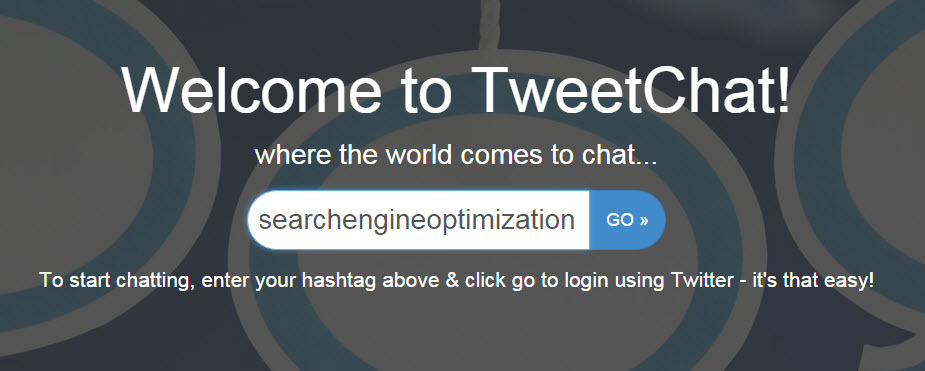
The problem is that the results you see are usually not useful. What you really want to do is participate in the Twitter chats. This can be done by staying updated about the schedule of the chats. Twubs and Tweetreports are two places where you can find schedules of Twitter chats relevant to your business.
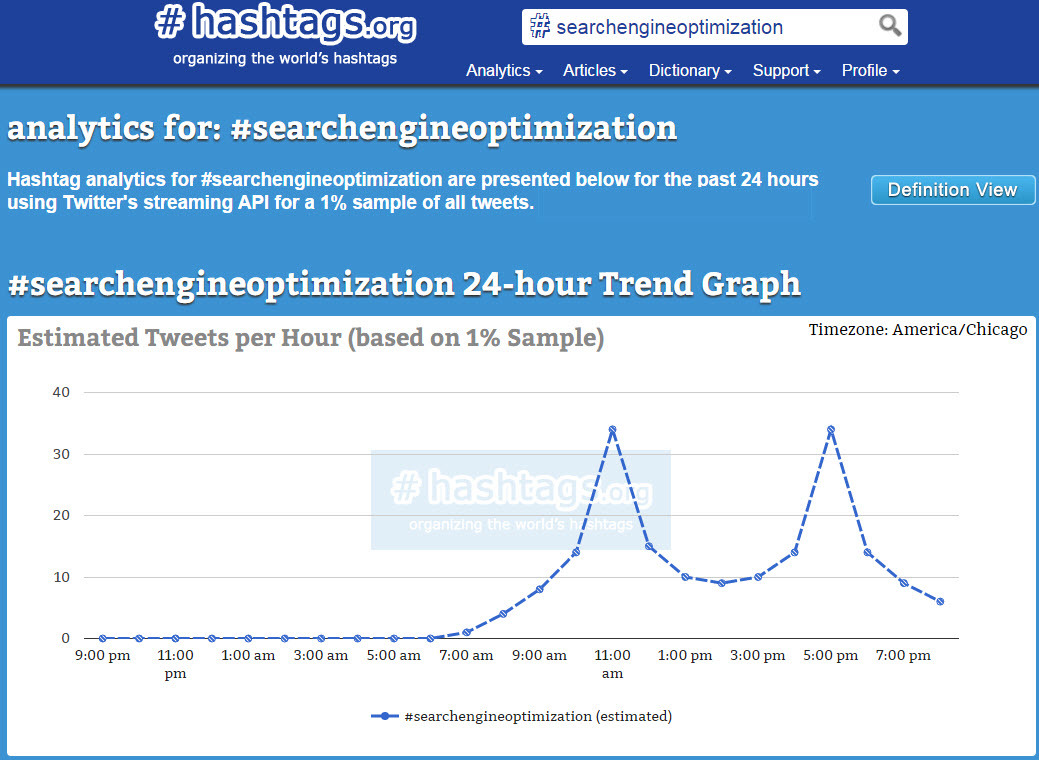
Once you’re in the conversation, be sure to jot down the questions raised by other participants. Also be on the lookout for commonly used terms, as they can be a difference maker when it’s time to write your content.
NOTE: many of these tools require you to authenticate your Twitter account. It’s a usual and expected practice these days.
5. YouTube
Many marketers forget that YouTube is the second largest search engine, trailing only its parent company Google. Millions of people use YouTube to watch videos not only for entertainment purposes, but to educate themselves about certain topics.
You can use a tool like soovle.com to get a full picture of many destinations online, including YouTube.
This tool can be useful for writing traditional text, it’s not just about ‘streaming media’. You might even find keywords that the Keyword Planner wouldn’t show you.
Aside from the YouTube keyword tool, you can also utilize the auto complete function of the search box.
Simply enter a keyword and see the related keywords that show up under it. This can prove to be a goldmine as the keywords are already sorted by popularity.
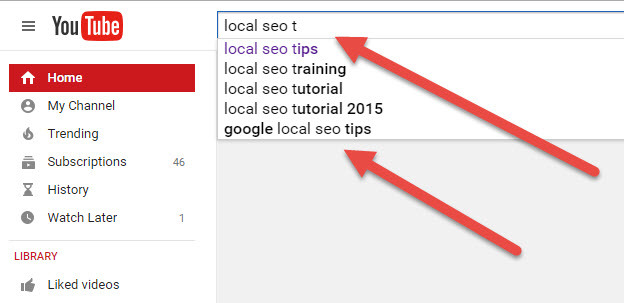
And while you’re at it, you might also want to look at the comments and see what people are talking about.
YouTube comments often have both positive and negative comments, but you can find a few gems here and there if you know where to look. Plus, you’ll learn what videos seem to work better than others based on the feedback.
For example, here’s a video of mine on ‘local seo tips’.
6. Amazon
If you’re an affiliate marketer, there’s a good chance you’ve joined Amazon Associates.
Aside from selecting what products to sell and getting your affiliate links, it is important to utilize the power of Amazon in terms of helping you craft the best product reviews and research what others have written. Take note that this method also works even if you’re not an Amazon affiliate.

In some cases, writing product reviews can prove to be too difficult. This is particularly true if you have no firsthand experience of using the product (and you shouldn’t lie!).
If all you include in your review are the same things such as product descriptions and features, then you are not really offering anything of value to your readers.
The secret to writing excellent product reviews is answering the questions of buyers.
Where can you find these questions? On Amazon, of course.
Many do not notice that product pages on Amazon have a dedicated question and answer section. This is where customers can ask questions about the product before they make a purchase.
It’s safe to assume that these questions are also typed in search engines. By providing the answers to these questions, you can build trust among your readers, thus compelling them to purchase through your referral links.
All while you gather further keyword research data that you can embed in your own site(s).
7. Keyword Tools
There are several keyword tools out there. Google’s Keyword Planner is the most popular since it’s free and most of the tools on the market extract data from it. It’s important to understand that each tool comes with its own limitations. This is why it’s a must to utilize multiple keyword tools to get the most comprehensive and relevant keyword list for your online business.
One way to get a lot of long-tail keyphrases is to use Ubersuggest.
Here’s an example of first level results from ‘search engine marketing’:
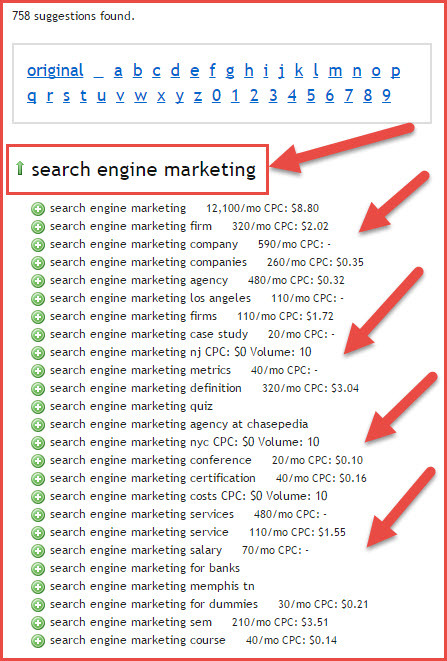
Basically, this tool works by adding a letter or a number to your keyword.
It uses the auto complete suggestions from Google and records all results for you. You can then download the list and plug them into Keyword Planner or another tool of your choice.
FREE DOWNLOAD: Here’s a 3-page list of free and paid keyword research tools (PDF) you can and should review for yourself.
Conclusion
Perhaps the biggest takeaway here is that keyword research isn’t all about entering a keyword into Google’s Keyword Planner.
“SEO is changing, and the future of SEO is will include more of ‘user intent’ thinking, improvement and leverage of long tail keywords, local search (including mobile), and ROI.”
There are more places in which you can discover highly targeted keywords.
With a little bit of creativity and common sense, you can surely find the best keywords for your online business, allowing you to craft the perfect content and optimize your campaigns to ultimately increase revenue.
P.S.
Have you looked into ‘regular’ magazines? Most keyword research happens online, but stroll down to your local library or bookstore, and pick out some magazines for your market. You’ll get more ideas from ‘offline’, and that may include some great headlines for your pages.


